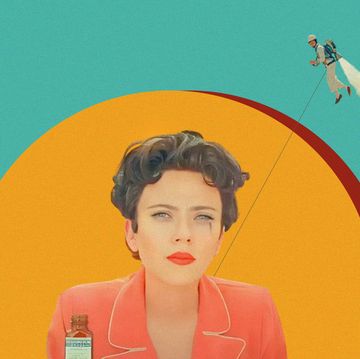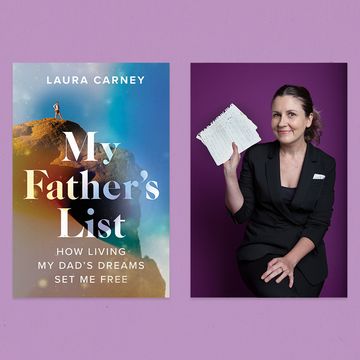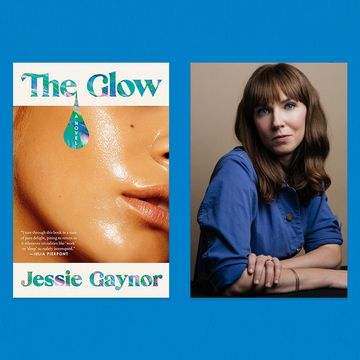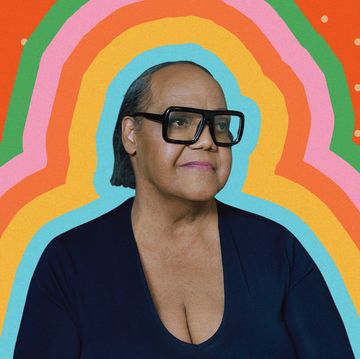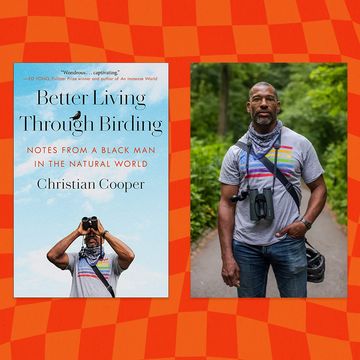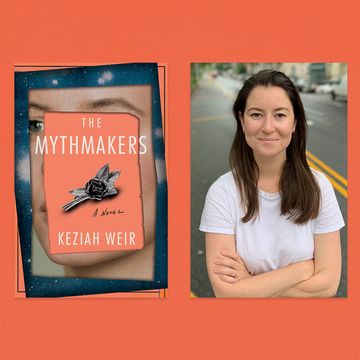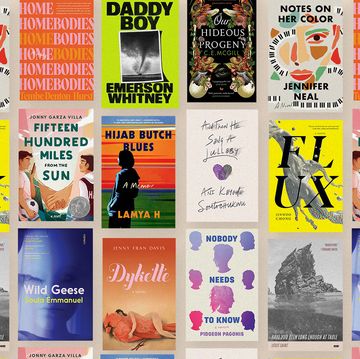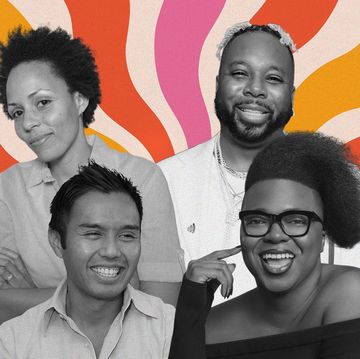For many years, jazz singer-songwriter Dara Starr Tucker used her Instagram account to do what we all did back in the 2010s: post filtered images of friends, sunsets, and food. Then came the 2020 election and its aftermath, and everything changed. “January 6th was a major catalyst for me beginning to do the work that I do,” Tucker tells Shondaland. “Observing that and trying to get a broader view of what was really taking place in this country. Why do we have people scaling walls and attempting to overturn an election? What is this really about? There are gaps in our learning; there’s some education that needs to happen around race and culture in this country. That has really driven me for the majority of this journey.”
She began posting social commentary in the form of video essays, providing heavily researched historical context on everything from the appropriation of Black culture in popular music and the use of blackface in classic films to the racial wealth gap and the racist history behind Aunt Jemima. Her social media following exploded; as of this writing, she has more than 1 million followers on TikTok and Instagram combined, and her videos have generated millions of views.
That said, it’s somewhat tricky territory for Tucker, who says that balancing her life as an artist with this new online presence has been a struggle. “My being thrust into the social media space happened during the pandemic. One of the reasons that it happened at all is that I was sidelined with music; I wasn’t able to perform. I think I’m just finding my footing as far as locking into who I am artistically again.”
On June 3, she released her eponymously titled sixth album, which includes a mix of original songs as well as covers of songs by Billie Eilish, John Denver, and Denise Nicholas, among others. She’ll follow the album’s release with a slate of live performances. Though she’s still figuring out how to merge her identities as an online commentator and musician, she has noticed a change in how she approaches her art.
“I’m learning to be more outspoken with my music,” Tucker says. “When January 6th happened, I had to shake myself and say, ‘What is your purpose? Who are you serving with your silence?’ I was a child of ministers and was taught to be reverential and obedient, not to be a troublemaker, especially as a Black person in this country. I was trained with what they call respectability politics, which is ‘We want to be the good Black people; we don’t want to be the kinds of Black people that white people have to be concerned about.’ So, I did not speak up about a lot of things. I have had to shake myself and find my voice, and I hope that is making its way into my music.”
Shondaland recently spoke with Tucker about songwriting, her new album, and accusations of racism against Norman Lear.
SANDRA EBEJER: Congratulations on your new album! It’s such a beautiful mix of original songs as well as covers. How did you decide which songs to include?
DARA STARR TUCKER: I chose a group of songs that resonated with me at this period in my life. I wanted the album to speak to who I am and where I am in what I’m doing. I’m a musician by trade, but in these last two or three years I’ve developed this other presence as an online commentator. So, that Dara Starr Tucker title that we gave the album represents the merging of those identities — that musical identity with that commentator and social media presence. I need to introduce folks to Dara Starr Tucker, the singer. I’m glad I was able to include six original songs because I see myself as a songwriter first.
SE: I read that you wrote “If You Asked Me To” on a dare. How does that song differ from others you’ve written?
DST: My husband, manager, and bass player, Greg Bryant, was like, “You don’t do enough 4/4 swing numbers. We don’t swing enough with your music. You need to write something in that vein.” He had been telling me this for the longest time. Then he got a piece of paper and a pen and threw it down in front of me and said, “Write something! You keep telling me you’re gonna write something!” So, I did. I wrote “If You Asked Me To,” and the title describes the process that I went through to write the song because he asked me to do it. I literally wrote that song in 15 minutes. It’s one of my favorite songs of my own because it was written from a place of freedom and a total lack of expectation. I need to engage with the creative process in that way more, I think.
SE: The second single, which you released in May, is a cover of Billie Eilish’s “Everything I Wanted.” Why did you choose to cover that particular song and release it when you did?
DST: May is Mental Health Awareness Month, and that particular song really resonated with me. It’s like, “Wow! ‘Everything I wanted.’ Well, what does that mean?” The songwriters, Billie and her brother, Finneas, are saying that to some degree, getting everything you want isn’t necessarily always satisfying.
For the past two or three years, I have engaged more with the public. I’m interacting in the comments section. My whole life and essence are now available for public consumption to a degree. I’ve gone through my own process of learning how to guard and protect myself against over-engaging with people, taking things too seriously, taking things too personally, being too invested in how things are going or how many people are seeing my videos, what they’re appreciating or not, or what their impressions of me are. Grappling with all of these things can be a real challenge. Even questioning the kind of content that I’m putting out: Is this really good for the world? Is this helping people? Is it self-serving? Your mind can start to do a number on you. I feel like I’ve landed in a decent place with that. I’m taking my mental health more seriously than I ever have. So, the song is particularly relevant, at least for me, with regard to Mental Health Awareness Month.
SE: A few years ago, you began posting deeply researched stories to social media. How do you decide what topics to focus on?
DST: I focus on what’s resonating with me, in the same way I choose what music that I’ll include on my projects. I notice that if I am focused on the subject matters that strike a chord with me, then that passion is communicated. On this last one I did, it was an examination of The Dick Van Dyke Show and their history with racial diversity. That’s my favorite show of all time, so it didn’t take a lot of research in the way that I have to do with a lot of other videos. But then my husband and I were noticing that a lot of the comments that came through on that one were emotional. Some people were saying, “This caused me to weep. I cried watching this.” And I was like, “What? Why would somebody be emotional watching that?” But it was the passion that I approached it with. It could not be a more meaningful topic for me because I just love the show. So, I like to start in that place of passion, that place of true heart.
SE: What about Dick Van Dyke and that show is so meaningful to you?
DST: How long do you have? [Laughs.] The Dick Van Dyke Show caught me at a time where I needed a rescue. I was a child of a minister. I had six brothers and sisters, but my father hated public school, so if they couldn’t afford to put us in Christian school, we would do some manner of homeschool [does air quotes]. We were quite isolated. I was probably 12 or 13 years old when I first saw The Dick Van Dyke Show. I noticed that the humor was very smart. It actually made me laugh. And they would sing! [Dick Van Dyke and Mary Tyler Moore] were both song-and-dance people, and so were [co-stars] Morey Amsterdam and Rose Marie. It was a very musical show. Now, as an adult, I examine things like race and culture [and realize] they were way ahead of their time. They were putting Black people in little, inconspicuous roles here and there when they didn’t have to.
SE: Speaking of classic TV, Eric Monte and Norman Lear were a big part of your social media posts last year. Eric Monte claims that Norman Lear stole many of his ideas and turned them into some of the biggest shows of the time, such as Good Times and Sanford and Son. How did you learn about this story? And what steps did you take to ensure its accuracy before you shared it?
DST: I do not ensure its accuracy. I’ll start out by saying that. I tried to use some very specific language in the piece, like, “This is a guy that says this. This is what his experience of these events was, and I’m going to let him have his say.” I felt confident enough in my desire to present that story that I felt he deserved to have his say. That’s my stance.
I heard about the story because I had done a story on Dr. Seuss and his history of racism, and I had folks in the comments going, “Everybody was racist back then. That’s just how it was. You need to not judge them by [today’s] standards.” I started answering folks back, and I would say, “Not every white person was racist back then. We need to stop making this assumption that every white person is racist.” I decided to do a video to highlight a bunch of white folks over the age of 80 who do not have a history of racism: Carl Reiner, Dick Van Dyke, Carol Burnett, and other folks. And then I was like, “Norman Lear is not a racist person.” There were folks that got into my comments section and went, “You know there’s a Black man who has accused Norman Lear of stealing his work, right?” I thought, “I’ve heard this somewhere. I don’t think this is true. Norman Lear is highly decorated. He doesn’t need to steal from people.” I had ignored it before then, but then I decided to start doing some research.
I really listened to what Eric Monte had to say. There are several interviews of him out there. I did a ton of research, even into parts of the story that Eric Monte hadn’t talked a lot about. Clearly, he was done wrong. Those are the types of things I look for. Like, is this just some random person off the street making wild claims? No, this is a guy that actually wrote for and helped to develop Good Times. They had to go back and retroactively give him a credit as being a co-creator, with Michael Evans, for Good Times. He was there, he was in the room, and there are people like [Good Times actor] John Amos that can attest to the creative contribution that he had.
I think Eric Monte is one of those folks who is probably his own worst enemy in a lot of ways, but I do think there is veracity to what he says. Would I stand behind the labeling of Norman Lear as a racist? Not necessarily. By all accounts, Norman Lear is not a raging racist. That’s Eric Monte’s opinion. As I said, I felt that he had the right to tell that story in his own way. That was his interpretation.
I’ve wrestled with the Norman Lear story a bit because I feel like it’s not as straightforward as Eric Monte presents it. But there is also a reckoning that needs to happen around his story that has not happened. Norman Lear did have to pay him a million dollars for not giving him the creator’s credit, but there’s a lot I feel that Norman Lear owes Eric Monte.
SE: Norman Lear is like a national treasure. When you shared those videos, what were the reactions from people?
DST: Oh, there were all kinds of responses. A lot of folks felt it was enlightening, even if they didn’t necessarily agree with Eric Monte’s statement. A lot of folks expressed disappointment in Norman Lear for the way [things] went down. And a lot of folks did push back against it. But I think there was so much goodwill for Eric Monte, just a basic understanding that this dude did not get his proper credit or compensation for the work that he did on several shows. Do I believe that he created Sanford and Son or suggested that it be a Black show? I don’t know. Parts of his story, for me, are a little suspect. I just try to allow people to make their assessment about [it]. I even say at the end, “Did this go down the way Eric Monte says it did? We won’t probably ever know the full story because Norman Lear has not made an extensive statement about it.” And I got a lot of criticism, frankly, from the Black community for even saying that. “Who does she think she is? How dare she question this man? Of course this happened.”
The other thing I got a lot of flak for was that I mentioned that Norman Lear was Jewish at the head of the story. I said that as an indication of, culturally, this is where he comes from. How is this Jewish man from Connecticut creating all these stories about Black life? That’s quite a leap. How did this happen? Little did I know, my comments section would be filled with raging antisemitism, which is something that I had to circle back and talk about. I did an entirely different video on relations between the Black and Jewish communities, largely due to the blowback that I received.
SE: When you think about everything you do — your music, social media, your podcast — do you see a through line to all of your work?
DST: The other day, I posted about the single that I released, “Everything I Wanted.” Someone commented, “There’s probably a lot of truth and healing in this music because that’s the kind of content that you put out.” I thought that was really cool. From my perspective, because it all comes from me, it comes from my heart. And because they emanate from the same place, I hope that they impact people similarly.
This interview has been edited for clarity and length.
Sandra Ebejer is a New York-based writer who has contributed to The Boston Globe, The Washington Post, Greatist, Flood Magazine, and The Girlfriend from AARP. Find her on Twitter @sebejer.
Get Shondaland directly in your inbox: SUBSCRIBE TODAY




